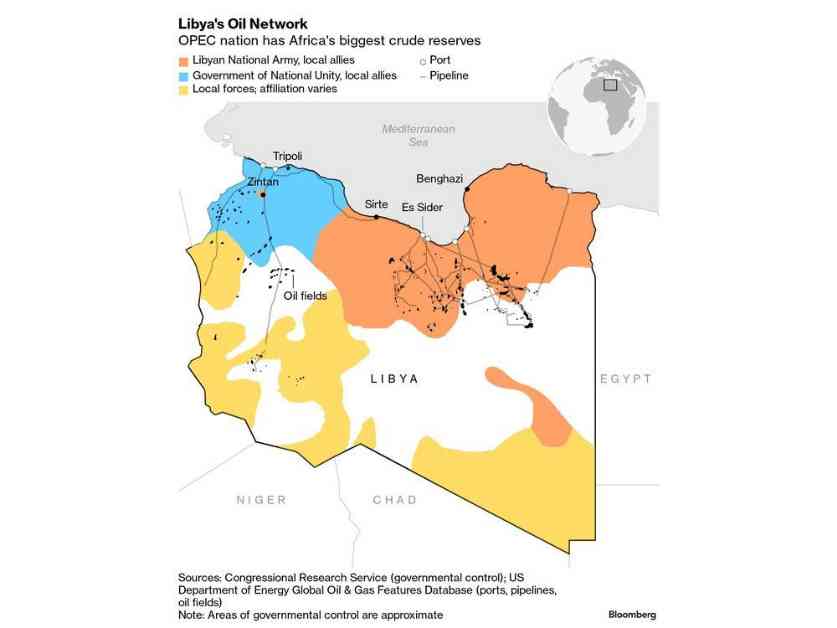Navigating Libya’s Oil Output Amid UN Crisis Resolution Efforts
Libya’s oil output remains uncertain as the nation grapples with a feud between rival governments and attempts to resolve the crisis through UN intervention. The situation is complex, with conflicting directives on oil production and disruptions at key facilities. Let’s delve deeper into the current state of Libya’s oil industry and the implications of the ongoing crisis.
Challenges in Oil Production Resumption
The recent directive to gradually resume pumping at three oil fields – Sarir, Messla, and Nafoura – has added to the confusion surrounding Libya’s oil output. While these fields have restarted operations, the reasons behind the decision remain unclear. It is speculated that the oil will be primarily used for local consumption rather than export, indicating a focus on meeting domestic energy needs amidst the crisis.
However, production at the Waha Oil Co. has experienced a significant drop, further complicating the situation. With daily output falling to a fraction of its normal level, the impact on overall production capacity is evident. The ongoing feud between Libya’s eastern and western governments has exacerbated the challenges, leading to disruptions in oil operations and supply chains.
Implications for Global Oil Markets
The fluctuating oil output in Libya has reverberated in global oil markets, with prices reacting to the uncertainties in the region. The initial spike in oil prices following the call for a production halt by the eastern government highlighted the market’s sensitivity to geopolitical developments. However, as the situation in Libya remains unresolved, oil prices have fluctuated, reflecting concerns over global demand and supply dynamics.
The geopolitical tensions in Libya have underscored the interconnectedness of global oil markets and the impact of regional conflicts on energy security. The need for stability and cooperation in the region is crucial to ensure a reliable and sustainable oil supply for both domestic and international markets.
UN Intervention and Resolution Efforts
The United Nations has stepped in to mediate the crisis in Libya, aiming to facilitate dialogue and negotiations between the rival governments. The focus is on finding a diplomatic solution to the power struggle and resolving the leadership dispute over the central bank, a key player in managing the country’s energy revenue.
The UN’s involvement signals a concerted effort to address the underlying issues fueling the crisis and pave the way for a peaceful resolution. The negotiations are likely to involve discussions on key appointments and management positions, crucial for restoring stability and governance in Libya’s oil sector.
Outlook for Libya’s Oil Industry
The future of Libya’s oil industry hinges on the successful resolution of the current crisis and the establishment of a stable and inclusive governance framework. The resumption of full production at key oil fields would be a positive step towards revitalizing the sector and ensuring a sustainable oil output for the country.
However, the challenges ahead are significant, requiring cooperation and coordination among all stakeholders to overcome the existing divisions and build a shared vision for the industry’s future. The role of the UN in facilitating dialogue and reconciliation will be crucial in navigating the complexities of Libya’s oil sector and charting a path towards recovery and growth.
In conclusion, the ongoing crisis in Libya’s oil industry underscores the need for diplomatic solutions, cooperation, and long-term planning to ensure the stability and sustainability of the sector. As the country grapples with internal divisions and external pressures, the path forward lies in dialogue, consensus-building, and a shared commitment to rebuilding Libya’s oil industry for the benefit of its people and the global economy.






















